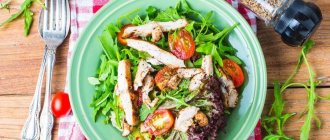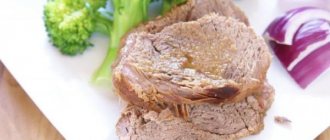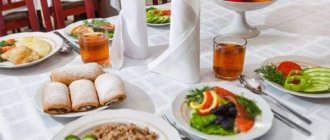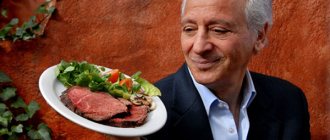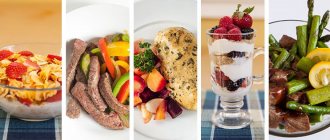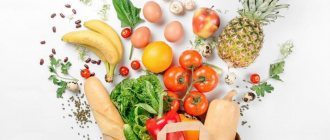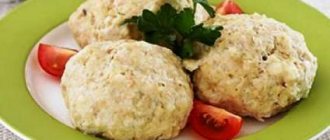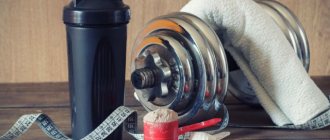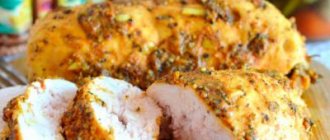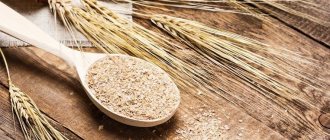A fitness diet is a godsend for girls who want to eat deliciously and at the same time lose weight. Its main advantage is its rich diet. No buckwheat or kefir days - the menu should be varied. An important condition: give up passive rest, replacing it with physical activity.
Work out in the gym or outdoors at least 3 times a week, dedicate 30 minutes a day to cardio training. Include foods rich in proteins and carbohydrates in your diet. These nutrients improve muscle function and provide the body with energy. It is better to minimize fat consumption - they slow down metabolism.
Principles of a fitness diet
- Smaller is better.
The portion should fit on your hand. - Take breaks
Eat at least 5 times a day. - Give up caffeine
After training, do not indulge in caffeine-containing products - coffee, chocolate. - Gain Energy
Eat well 2 hours before your workout. Excellent menu items: chicken fillet with rice, fish with salad, yogurt, oven-baked potatoes, vegetables. An hour before the start of classes, you can eat an apple, cottage cheese, a small portion of porridge or a pear. - Drink water
Drink still water 20 minutes before your workout and every half hour during it. - Love green tea
A cup of green tea rich in amino acids and glycogen will turn fat into energy, so you will burn more calories. Drink tea without sugar half an hour before starting physical activity. - Don't go hungry
Be sure to eat 20 minutes after your workout. At this time, the body absorbs proteins and carbohydrates well and turns them into muscle, not fat. Give preference to cheese, cottage cheese, egg whites, chicken, rice, fruits, vegetables, grape juice.
Grocery list
A list of the fifteen most popular products that can always be found on store shelves will help you create fitness nutrition.
22 – Olive oil
Olive oil is rich in healthy monounsaturated fats, making it an ideal food for a healthy heart.
In fact, research shows that replacing two tablespoons of the saturated fat found in butter and lard with monounsaturated fat may reduce the risk of heart disease. But this is not the only reason to eat them. A study in the journal Nature reports that olive oil also has powerful anti-inflammatory properties, meaning it can help reduce pain and swelling as much as a dose of ibuprofen.
- 119 calories per tablespoon
- Eat 2 tablespoons per day
In addition to cooking with olive oil and using it as a salad dressing, you can include more of the product in your diet by adding 1-2 tablespoons to your daily protein shake.
21 – Quinoa (Quinoa)
Chances are, you may not be familiar with this exotic whole grain plant that grows in the Andes Mountains. But you must meet. Quinoa (Quinoa) has a light, mild flavor, making it ideal for those people who hate other types of whole grains.
- 318 calories per half cup
- Eat 2-3 servings per week
Even better, this plant has more protein than any other grain and is loaded with a high dose of heart-healthy unsaturated fat.
20 – Beans
Although tiny, beans can help you feel energized and full longer than almost anything else you can eat.
The reason is twofold: They are incredibly high in fiber, which swells the stomach and promotes a feeling of fullness. They're also loaded with very complex forms of carbohydrates, causing your body to take longer to convert them into energy.
- 227 calories per cup
- Eat 2 servings per week
Like meat, they are also rich in protein. But unlike meat, they do not contain saturated fat. So why did our experts choose the black variety of beans? It's easy. They have more fiber per serving than any other member of the legume family.
19 – Green tea
From cancer prevention and weight loss to potentially slowing the progression of Alzheimer's disease, green tea helps fight almost every major disease.
Don't like tea bags? Try buying a liquid extract.
- 2 calories per cup
- Drink 1-3 glasses a day
Add some to the water and voila! You now have instant tea.
18 – Spinach
One serving of these greens contains fiber, calcium and nearly all the daily recommended intake of beta-carotene, a nutrient that is vital for the immune system, health, and good vision.
- Only 7 calories per cup
- Eat 2-3 servings per week
What do nutritionists have in common with happy cartoon sailors? They all love spinach! And for good reason 
17 – Oatmeal
When it comes to breakfast in the morning, there's nothing better than a bowl of oatmeal to skyrocket your energy levels and give you a fuel boost for hours. Oatmeal is also loaded with zinc, which fights stress and boosts immunity.
If that wasn't enough to convince you to pop a bowl of oatmeal in the microwave, keep in mind that oatmeal may also promote weight loss and reduce the risk of heart disease. Oatmeal contains high levels of soluble fiber, which protects the heart and arteries by trapping and expelling cholesterol, lowering cholesterol levels by 30 points or more.
- 148 calories per half cup
- Eat 3-4 servings per week
However, the best oatmeal option may not be the most convenient. Those flavored single-serve packets that flood grocery store aisles are often made with added sugar and therefore include extra calories. Instead, buy a large box of oatmeal and add fruit and non-nutritive sweeteners yourself if you need them.
16 – Blueberry
Of all the fruits you can eat, blueberries are the absolute winner. If you eat them raw, toss them into your porridge or add them to a fruit salad or smoothie, as blueberries contain more fiber, vitamins and minerals per ounce than any other fruit.
- 41 calories per half cup
- Eat 1-2 cups per week
Chief among these nutrients are antioxidants, which fight free radicals. Free radicals, which increase in number as you get older, travel throughout your body, damaging cells, causing disease and signs of premature aging. And blueberries use all their power to stop their action.
Need another reason to eat blueberries? What about your memory? The same antioxidants that fight disease are also effective in helping maintain healthy connections between brain and nervous system cells, enabling clear, quick thinking and excellent memory.
15 – Turkey breast
Skinless turkey - seven grams of protein in every 28.3 grams of product. An ideal product for the formation of muscle fiber. Turkey is rich in B vitamins, zinc (sperm production enhancer), and selenium, a cancer fighter. Contains amino acids and a minimal amount of saturated fat.
- 84 calories per 100 gram serving
- Eat 3 servings per week
It is considered one of the universal types of meat, and the taste and structure of the product surpasses the quality of chicken breast.
14 – Olive oil
Rich in healthy monounsaturated fats. It has been scientifically proven that replacing two tablespoons of saturated fat, which is found in butter and lard, with monounsaturated fats reduces the risk of heart muscle pathologies.
- 178 calories per tablespoon (20 g)
13 – Apples
The special charm of the fruit is its availability all year round. Everyone can find their favorite variety. The fiber included in the composition improves the functioning of the gastrointestinal tract and satisfies hunger.
- 48 calories per 100 grams
12 – Eggs
One egg contains 4 grams of amino acids to build quality muscle mass in addition to one of the highest naturally available doses of choline, a vitamin that improves memory.
- 74 calories per C0 egg
- Eat 3-7 eggs per week
11 – Milk
You know that milk has a positive effect on the body, but you may not know that the absence of dairy products in your fitness diet makes your body anxious.
When you don't have enough milk, your body produces hormones that tell your cells to store calcium and fat. Calories are also taken into account, so you should drink milk by the glass, not by the liter. Just make sure you consume dairy products.
They contain components that help your body's fat burning system and slow down the accumulation of fat. And while other forms of supplements work great too, this is where the real thing works best.
- 130 calories per cup (250 ml) of 2.5% fat milk
- Eat 3 servings of dairy products per day
It is very important that your diet when exercising includes dairy products. The absence of these promotes the production of hormones that seek to preserve calcium and fat.
10 – Cottage cheese
Up to 50% of cottage cheese contains casein, which nourishes the body with useful substances for a long time. That is why it is recommended to eat the product before bed, so that the muscles receive a dose of the necessary substances for as long as possible. The optimal percentage of fat content is 5%.
- 240 calories per pack of 5% cottage cheese per 200 grams
9 – Buckwheat
A classic of the genre, the queen of stereotypes. An ideal source of slow carbohydrates, a storehouse of vitamins and microelements. Affordable price, easy preparation.
- 343 calories per 100 grams of dry product
8 – Legumes
Soy contains protein from meat, fiber from whole grains, and antioxidants, vitamins and minerals from top vegetables and fruits. If you don't like tofu and soy milk, there are simple ways to increase your soy intake. It is also a cheap product rich in plant protein. Beans contain up to 18 grams of protein. Supplement fitness nutrition for weight loss with fiber, keeping your appetite under control.
- 310 calories per 100 grams of dry beans (300 calories per medium cup
- Eat 2 servings per week
Soy nuts and soy protein, used in some protein shakes and bars, not only taste great, but are also very convenient.
7 - Water
You know you need to drink more water, and for good reason. Water flushes toxins out of your system, regulates body function, acts as a joint insulator, prevents kidney stones, and supplies the body with important minerals.
While water helps in every way, it can be the most powerful aid when it comes to weight loss. Drinking 1-2 glasses of water half an hour or so before meals, for example, can help relieve hunger pangs.
- 0 calories
- Drink eight 225 ml glasses per day
Feel like you can't drink that much water every day? Try making sugar-free lemonade that you can drink throughout the day, or buy a pack of zero-calorie flavors to add to your water bottle and take with you to work.
6 – Whole grain bread
Processed flour deprives the body of fiber and protein and is quickly digested, causing a spike in glucose.
Over time, these spikes in insulin production wear down the body, damage cells and develop excess fat storage. So why don't you ever eat white bread? However, there is a trade-off for bread lovers, since fitness food does not mind whole grain flour products. The product retains its beneficial properties and does not provoke changes in insulin.
- 140 calories per 2 slices
- Eat 6 slices per week
It is recommended to check the ingredient list before purchasing. Choose whole grain products that contain 100% whole wheat or whole grains listed as the first ingredient on the package.
Even if you're cutting back on carbs, there's still room for complex whole grains in your diet. You stay fuller longer and get sustained energy for as long as possible.
5 – Almonds
High in protein, fiber and vitamin E, almonds are great for your heart, digestive system and skin.
- 82 calories per 14 gram serving
- Eat 3 servings per week
Although they also contain healthy unsaturated fats, some athletes avoid almonds due to their high calorie content. But this is a mistake. Gary Frazier, Ph.D., professor of medicine at Loma Linda University in California, studied people who added 60 grams of almonds to their diet regularly. It turns out they didn't have any significant weight changes.
“Because nuts are a solid food, it appears that even this significant amount of calories is never absorbed into the body,” he says.
To include more almonds in your diet, try keeping a bag of dry roasted or lightly flavored nuts in your desk drawer and snack on them instead of running to the vending machine. You can also add almond butter to smoothies or use it instead of peanut butter to make a sandwich.
4 – Natural yogurt
Provides the benefits of milk plus active cultures that increase the number of germ-fighting bacteria along the intestinal wall. Contains calcium, which helps saturate the body - an excellent fitness food for weight loss. It is necessary to choose a product without added sugar, with a fat content of 1.5%.
- 143 calories per cup of 1.5% yoghurt in 20 ml
- Eat 3 servings a day
Yogurt has all the benefits of milk. Boosted with active cultures that increase the amount of germ-fighting bacteria along your intestinal wall. This helps prevent diseases.
Research shows that people who eat this product are less likely to get colds. Like milk, yogurt contains calcium, which not only speeds up fat burning, but also helps you feel full, making it an ideal food for weight loss.
Just be careful: Most yogurts come with added sugar and fructose corn syrup.
3 – Broccoli
These meaty greens should be at the top of the list when it comes to vegetables. It is rich in essential supplies of iron, calcium, fiber and vitamin C, which has a beneficial effect on the condition of the cardiovascular system, bones and the fight against colds.
- 34 calories per 100 gram cup of broccoli
- Eat 2-3 half-cup servings per week
Are you afraid of broccoli? Get used to it slowly: add it to stir-fry, on pizza, or use raw pieces, dipping them in your favorite sauce.
2 – Tomatoes
Yes, it's true that tomatoes were called "love apples" and had a reputation as a powerful aphrodisiac.
But knowing this has nothing to do with why we chose the tomato as the best food for sexual health. Rather, tomatoes earn their place on our list, and their relatively high ranking overall, because of one nutrient: lycopene. This powerful antioxidant, which comes from the pigment that gives tomatoes their red color, may actually help fight a number of diseases and ailments most important to men, such as prostate cancer.
Also, it is a powerful antioxidant that can fight a number of diseases and ailments that are most important to men, such as prostate cancer.
- 60 calories per 300 grams of vegetables
- Eat 4 servings per week
And good news for busy people: tomatoes are that rare food that is more nutritious when cooked than when eaten raw.
1 – Salmon
Salmon tops the list for a number of reasons, but the most important is that salmon is truly rich in omega-3s. These fatty acids slow memory decline with age and improve heart health by regulating heart rate and keeping arteries and veins flexible and plaque-free. This is an excellent source of protein (20 grams of protein per 85 g of product), impeccable meat taste, and easy to prepare.
- 121 calories per 85 gram serving
- Eat 3-4 servings per week
While consuming saturated fat leads to obesity, polyunsaturated fatty acids in fish prevent the development of many diseases, according to a study published in the journal Clinical Science.
And this is just the tip of the iceberg. Salmon is also an excellent source of protein. An 85-gram serving of cooked salmon contains 20 grams of protein, making it ideal for building muscle and losing weight.
In addition to stimulating your metabolism three to four times more than carbohydrates or fats do, protein is the best food to fill you up so you'll eat fewer calories and burn more.
Fitness diet menu for the week
Monday
Breakfast: orange, 2 egg whites, muesli with milk. Snack: peach and rice. Lunch: chicken breast, juice, durum wheat pasta. Afternoon snack: green apple, yogurt. Dinner: meat, salad.
Tuesday
Breakfast: milk, omelette, buckwheat. Snack: cottage cheese with banana. Lunch: juice, rice, salad, fish. Afternoon snack: oven-baked potatoes, a glass of low-fat yogurt. Dinner: vegetable and shrimp salad.
Wednesday
Breakfast: fruit, omelet, oatmeal. Snack: cottage cheese mixture with chopped banana. Lunch: rice with fish, salad. Afternoon snack: berries or fruits, yogurt. Dinner: white meat, vegetable salad, corn.
Thursday
Breakfast: oatmeal, omelette, fruit. Snack: rice, a glass of vegetable juice. Lunch: white meat, fruit. Afternoon snack: vegetable salad or cottage cheese. Dinner: light salad, chicken breast, piece of pita bread.
Friday
Breakfast: fruit, muesli with milk, 2 egg whites. Snack: 2 tablespoons of low-fat cottage cheese, a glass of carrot juice. Lunch: vegetable salad with chicken, baked potato, pear. Afternoon snack: a couple of fruits and yogurt. Dinner: boiled beans, fish and vegetable salad.
Saturday
Breakfast: a glass of milk, an orange, a portion of oatmeal porridge. Snack: small banana and cottage cheese. Lunch: rice with chicken fillet. Afternoon snack: a spoonful of bran and vegetable juice. Dinner: lean meat, boiled or canned corn.
Sunday
Breakfast: 2 egg whites, 2 tablespoons of low-fat cottage cheese, orange juice, a portion of oatmeal. Snack: Fruit salad topped with yogurt. Lunch: rice with vegetables and chicken. Afternoon snack: boiled or baked potatoes, a glass of yogurt. Dinner: salad, stewed fish, pear or apple.
Maybe
Recipes for proper and healthy eating
In the process of burning fat, proper nutrition is an important element. A fitness diet involves intense physical activity and the body must have enough strength to perform the exercises. The recipes for dietary dishes are simple and preparation is not difficult for most women.
Protein omelet
To make an omelet, you can use whole eggs or just the whites. Milk can be replaced with vegetable broth or boiled water. To prepare an omelet, beat 3 eggs and half a glass of milk with salt. The resulting mixture is placed in a greased form and placed on a steamer rack. In steam mode, the dish is cooked for 20 minutes. After the specified time, the finished omelette is placed on a plate and supplemented with fresh herbs and vegetables if desired.
Boiled fish
Fish recipes usually involve baking, frying or salting fish. Fish boiled in salted water seems too bland and tasteless. To enhance taste and appetite, add bay leaves, green or onions, carrots and herbs to the broth. Herring, mackerel, pink salmon, salmon, hake, pollock, etc. are suitable for cooking. The carcass should be thoroughly cleaned and gutted, cut into portions. Place fish pieces into boiling water and cook until tender. Cooking time depends on the type of fish. Mackerel and herring will be cooked in 7 minutes, salmon in 15, and hake pieces are cooked in 35 minutes. Boiled or baked potatoes and steamed rice are served as a side dish. The dish should be supplemented with fresh vegetables and herbs.
- We recommend reading: nutrition during physical activity
